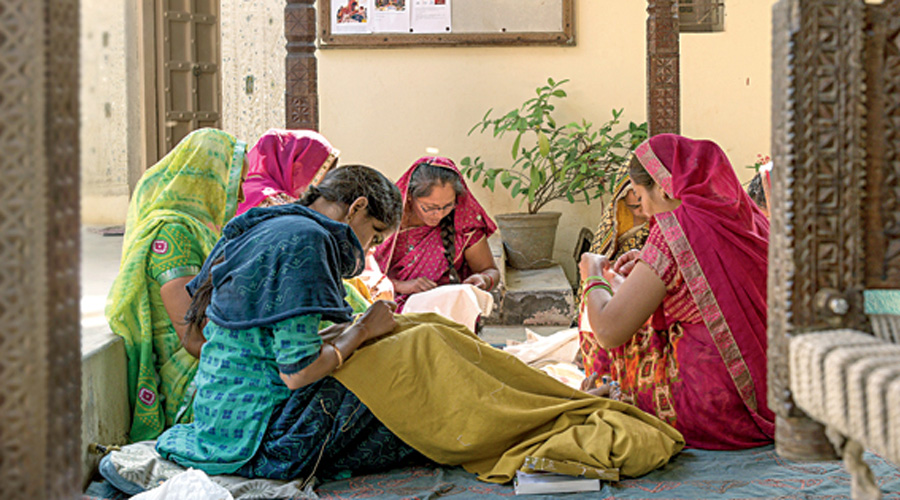West Bengal stands 11th in a national ranking on achieving sustainable development goals (SDG), a marginal improvement over the performance in previous years, shows a report released by the environment thinktank Centre for Science and Environment (CSE).
Kerala tops the list and is followed by Himachal Pradesh, Tamil Nadu, Andhra Pradesh and Goa, according to the report, which analysed data provided by the Union government.
Bihar has the poorest sustainability score, and Jharkhand, Rajasthan and Uttar Pradesh are marginally better. The State of India’s Environment Report 2023, released by CSE director-general Sunita Narain on Thursday evening, shows that West Bengal has improved its score from 56 in 2018-19 to 60 in 2019-20 to 62 in 2020-21, having improved in 10 parameters and slipped in five. The state ranked 13th in 2019-20 and 11th in 2020-21.
The latest ranking has been calculated on the basis of the 2020-21 data because Niti Ayog has not published any figures after that, said a member of the CSE research team. While West Bengal has done well in areas like clean energy (ranked 2nd nationally), peace and justice, and health and sanitation, it has performed poorly in key environmental areas such as climate action, in which category the state has scored 39, compared with the country average of 54.
It has also not done well in having “sustainable cities and communities”, a category that saw West Bengal score 45. It has done poorly in the “life on land” parameter, which focuses on tree cover. Globally, India has ranked 121 in 2022 in achieving sustainable development goals, a notch lower than 2021 and as many as nine notches lower compared with the 2018 ranking.
“The country ranking is done following a separate methodology. India’s scores over the past three years have been hovering around 60 per cent,” said a CSE official. “Several international reports point out that West Bengal is one of the most climatically vulnerable states in the country. The latest score clearly indicates that we need to act fast,” said environment activist Subhas Datta.
“State governments in general, including the West Bengal government, hardly consider sustainability issues seriously,” said Nilanjan Ghosh, an environmental economist and director of the Kolkata centre of the think-tank, Observer Research Foundation.
Datta alleged that the West Bengal government over the years had remained insulated from key environmental issues such as climate action and air pollution. State environment minister Manas Bhuiya, however, said West Bengal was in a frontline position in several sustainability parameters such as employment, health, economy and infrastructure.
“Once I get the report, our officials will assess it and respond,” he said. The SDG score is calculated based on performances in 17 areas, as approved by the United Nations in 2015. “The original aim was to reach the sustainability goal in 2030. Covid is likely to have pushed the goalpost,” said a CSE official.
